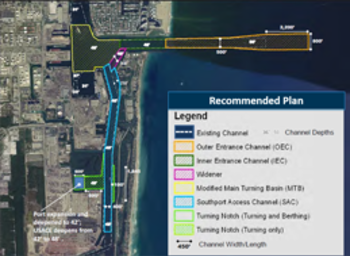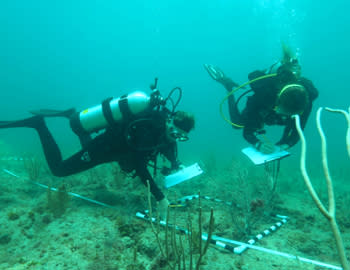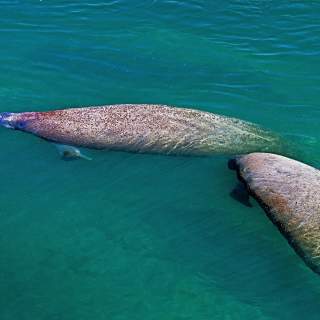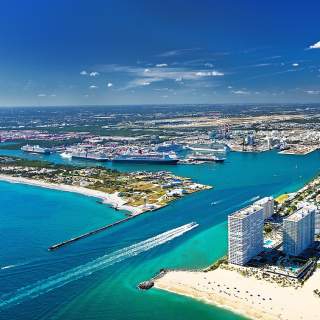Harbor Deepening and Widening
Project to Support Sound Environmental and Economic Growth
The Port Everglades Navigation Improvements Project (PENIP), led by the U.S. Army Corps of Engineers (USACE), will deepen and widen the port’s navigational channels and turning basin to address safe shipping requirements. This project is timely as older ships are being replaced by larger vessels that move cargo more efficiently and are built meet modern environmental standards.
Critical to retaining global business partners, the PENIP will support local jobs and reduce delays in the supply chain that feeds, clothes and fuels our region.
The need for the PENIP was predicted more than 27 years ago and began with a feasibility study in 1996. The project was authorized for construction through the Water Resources Development Act (WRDA) of 2016, and an increased funding authorization in the 2022. More than $20 million in New Start construction funding was provided to the project in the Fiscal Year 2021 USACE Work Plan.
Nearly three decades of delays have forced the port to turn away business today that would benefit the community and our national supply chain. And, the project’s cost has quadrupled to $1.35 billion as of September 2023, with almost half of that cost devoted to mitigation and minimizatio n of environmental impacts.
n of environmental impacts.
The PENIP’s main components are to:
- Deepen and widen the Outer Entrance Channel from the existing 45-foot depth over a 500-foot channel width to a 55-foot depth by a 800-foot width for a flared channel that extends 2,200 feet seaward
- Deepen the Inner Entrance Channel and Main Turning Basin (MTB) from 42 feet to 48 feet (plus 1-foot required and another 1-foot allowable overdepth for a total 50 feet)
- Widen the section of the Intracoastal Waterway called the Southport Access Channel (SAC) that extends from Berth 23 to Berth 26, referred to as the “knuckle,” by approximately 250 feet and reconfiguring the U.S. Coast Guard (USCG) facility to the east
This project is complex because of the port’s natural environment that includes manatees, fish, corals, limestone hardbottom, mangroves and seagrasses. As a result, the project’s environmental considerations have expanded significantly in response to lessons learned from more recent dredging projects. The PENIP will be one of the most scrutinized and environmentally sensitive in the nation. That is a responsibility that Broward County and its Port Everglades willingly accepts to keep Florida’s supply chain moving safely, efficiently and ecologically.
All U.S. ports with dredging projects are currently undergoing the same scrutiny requiring applying new scientific analysis, new (and additional) data points and lessons learned from other dredging projects.
new (and additional) data points and lessons learned from other dredging projects.
Strategic investment in ports and associated infrastructure is necessary for our nation’s seaports to remain competitive. Florida is the third most populous state and is still growing with a residential population of 22.2 million according to the 2022 U.S. Census. In addition, figures published by Visit Florida, the state’s official tourism agency, show that Florida welcomed 137.4 million visitors in 2022, the highest number in Florida’s history. Our residents and visitors are consumers who require affordable food products and commodities essential for quality of life.
Florida ports act as an economic multiplier, contributing billions of dollars to the state’s economy and creating jobs and a higher standard of living for residents. The Port Everglades project will bring thousands of good-paying jobs to South Florida, and this project will facilitate the ongoing supply of food and commodities to our region. Over the past three decades, Florida’s seaports have invested billions of dollars in expanding capacity and connectivity, both critical components in the efficient movement of people and cargo.
Related Links:
U.S. Army Corps of Engineers Port Everglades Harbor Project
Port Everglades Benthic Survey Data Viewer
Ocean Dumping: Modification of an Ocean Dredged Material Disposal Site Offshore of Port Everglades Florida (Federal Register)
 n of environmental impacts.
n of environmental impacts. new (and additional) data points and lessons learned from other dredging projects.
new (and additional) data points and lessons learned from other dredging projects.
